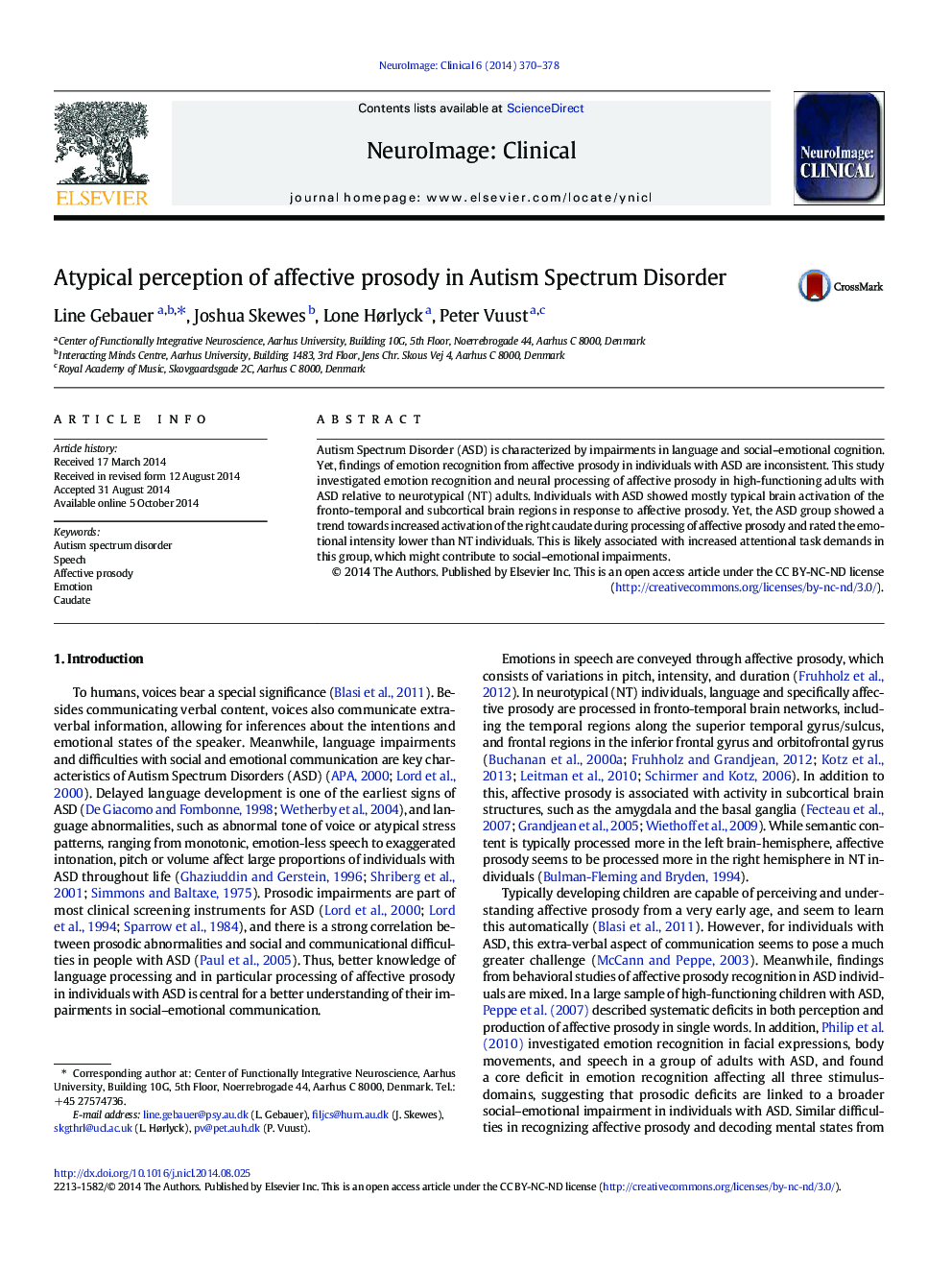| Article ID | Journal | Published Year | Pages | File Type |
|---|---|---|---|---|
| 3075260 | NeuroImage: Clinical | 2014 | 9 Pages |
•This study investigated processing of affective prosody in ASD•Including 19 high-functioning adults with ASD and 20 neurotypical (NT) adults•Using behavioral measures for emotion recognition and fMRI•Individuals with ASD showed lower ratings of emotional intensity than NT•A trend towards increased activation of caudate during affective prosody in ASD
Autism Spectrum Disorder (ASD) is characterized by impairments in language and social–emotional cognition. Yet, findings of emotion recognition from affective prosody in individuals with ASD are inconsistent. This study investigated emotion recognition and neural processing of affective prosody in high-functioning adults with ASD relative to neurotypical (NT) adults. Individuals with ASD showed mostly typical brain activation of the fronto-temporal and subcortical brain regions in response to affective prosody. Yet, the ASD group showed a trend towards increased activation of the right caudate during processing of affective prosody and rated the emotional intensity lower than NT individuals. This is likely associated with increased attentional task demands in this group, which might contribute to social–emotional impairments.
